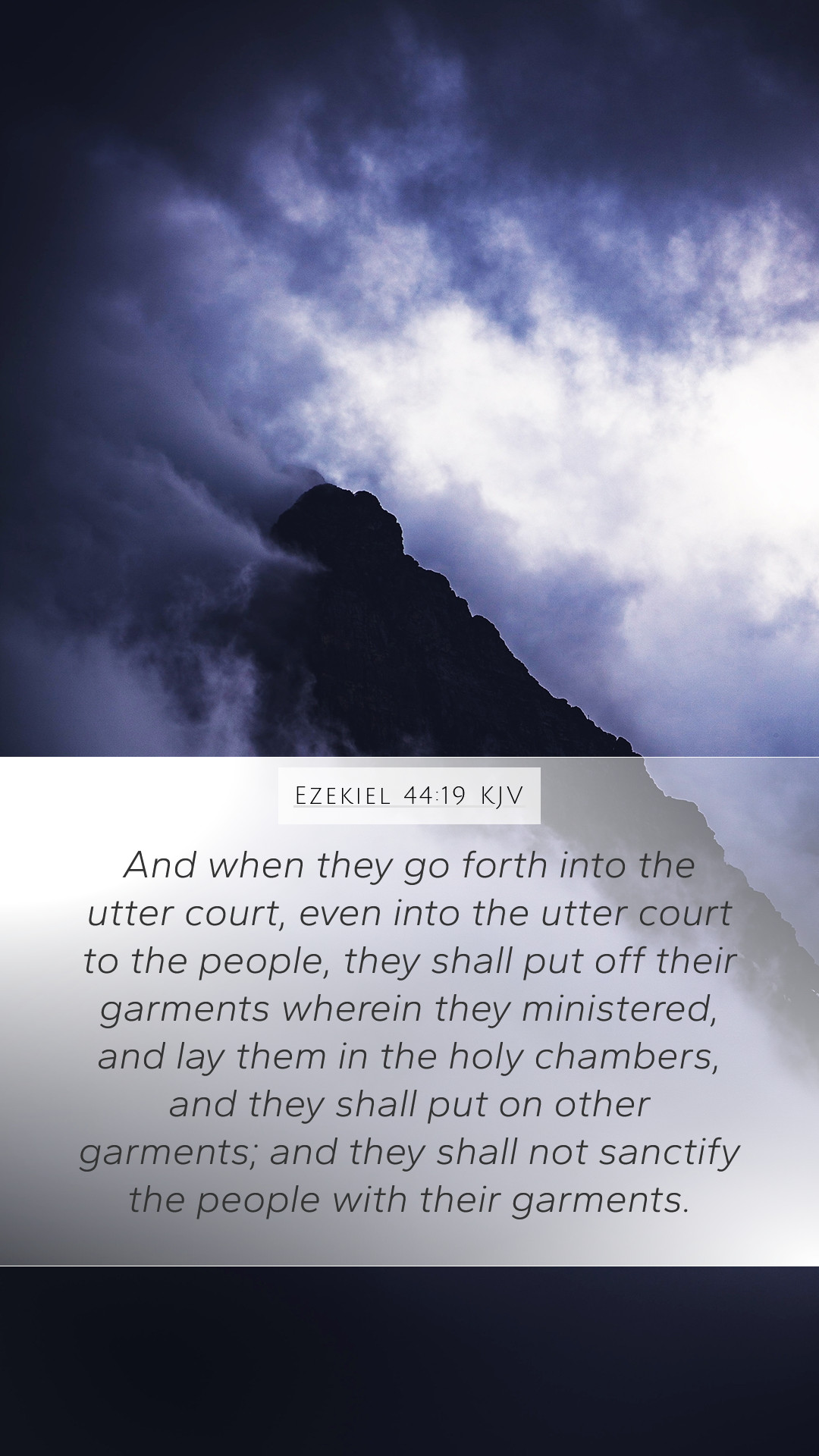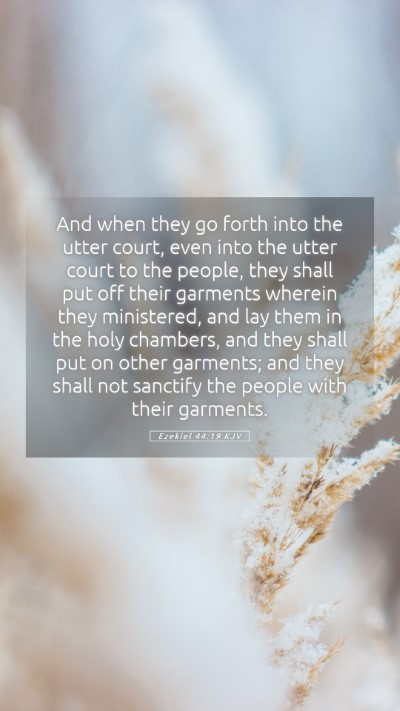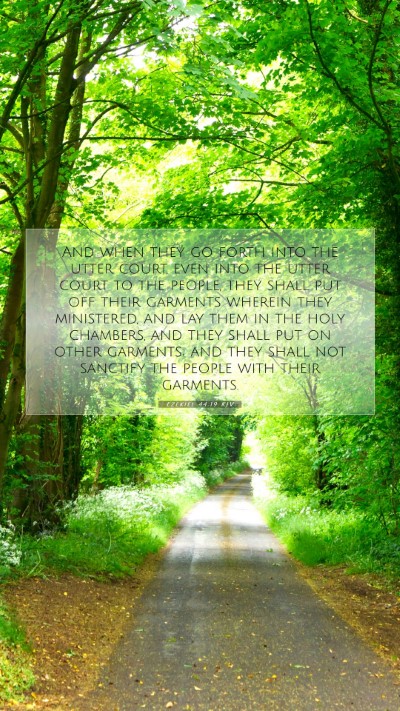Ezekiel 44:19 - Understanding the Spiritual Significance
Ezekiel 44:19 states: "And when they go forth into the utter court, even into the utter court to the people, they shall put off their garments wherein they ministered, and lay them in the holy chambers; and they shall put on other garments; and they shall not sanctify the people with their garments."
This verse carries significant theological implications regarding the holiness required of the priests and their role leading the people in worship.
General Meaning and Context
This passage occurs within a vision received by the prophet Ezekiel, which outlines the regulations for worship in the restored temple. It specifically addresses the duties and requirements of the Levitical priests, emphasizing the distinctions between sacred and common, as well as the need for purity in service.
Commentary Insights
-
Matthew Henry:
Henry emphasizes the importance of the separation of sacred and secular. The priests, upon completing their duties, are instructed to remove their ministerial garments, symbolizing the necessity of maintaining a distinction between holy service and everyday life. Henry notes that this act signifies the seriousness with which the priests must regard their ministry, as well as the importance of personal holiness.
-
Albert Barnes:
Barnes points out that the priests' garments represent their roles and responsibilities in the temple. The act of removing these garments serves as a reminder of the sanctified nature of their ministry; they cannot carry the holiness of their service into the regular life of the community. Such practices underline the significance of reverence in worship and the necessity of spiritual readiness before engaging with God’s people.
-
Adam Clarke:
Clarke elaborates on the symbolism of the garments, explaining that wearing consecrated attire was not just a matter of religious duty but also served practical purposes in distinguishing the priests. The removal of these garments signifies the cessation of their priestly functions, ensuring that their everyday interactions do not lead to confusion of roles, thereby maintaining the integrity of holy worship.
Theological Themes
-
Holiness:
This verse reinforces the principle that holiness must be preserved, not just in the sacred spaces but also in the hearts of the ministers.
-
Separation:
The call to separate sacred garments from common attire serves as a metaphor for the distinction between the sacred call of the priesthood and the regular life of the community.
-
Ministry Integrity:
Ensuring that ministers approach their duties with reverence helps to maintain the trust and respect of the community they serve.
Applications for Today
The principles outlined in Ezekiel 44:19 can be applied to modern life, especially for those involved in ministry. Here are a few insights:
- Personal Holiness: Engage in abstaining from actions and garments that do not reflect your commitment to God.
- Role Clarity: Recognize the significance of your role within your community, ensuring it aligns with God’s purpose.
- Respect for Worship: Bring intentionality and reverence into your worship practices, perhaps considering your spiritual attire symbolically.
Cross References
- Exodus 28:2-4 - Instructions on priestly garments
- 1 Peter 1:15-16 - The call to holiness by living righteously
- Hebrews 10:22 - Encouragement to draw near with a sincere heart
Conclusion
In summary, Ezekiel 44:19 emphasizes the mandate for holiness in ministry and the importance of separating the sacred from the secular. By understanding this scripture through the lens of respected biblical commentaries, believers can deepen their appreciation for the seriousness of their spiritual responsibilities and the call to live a life reflective of God's holiness.


